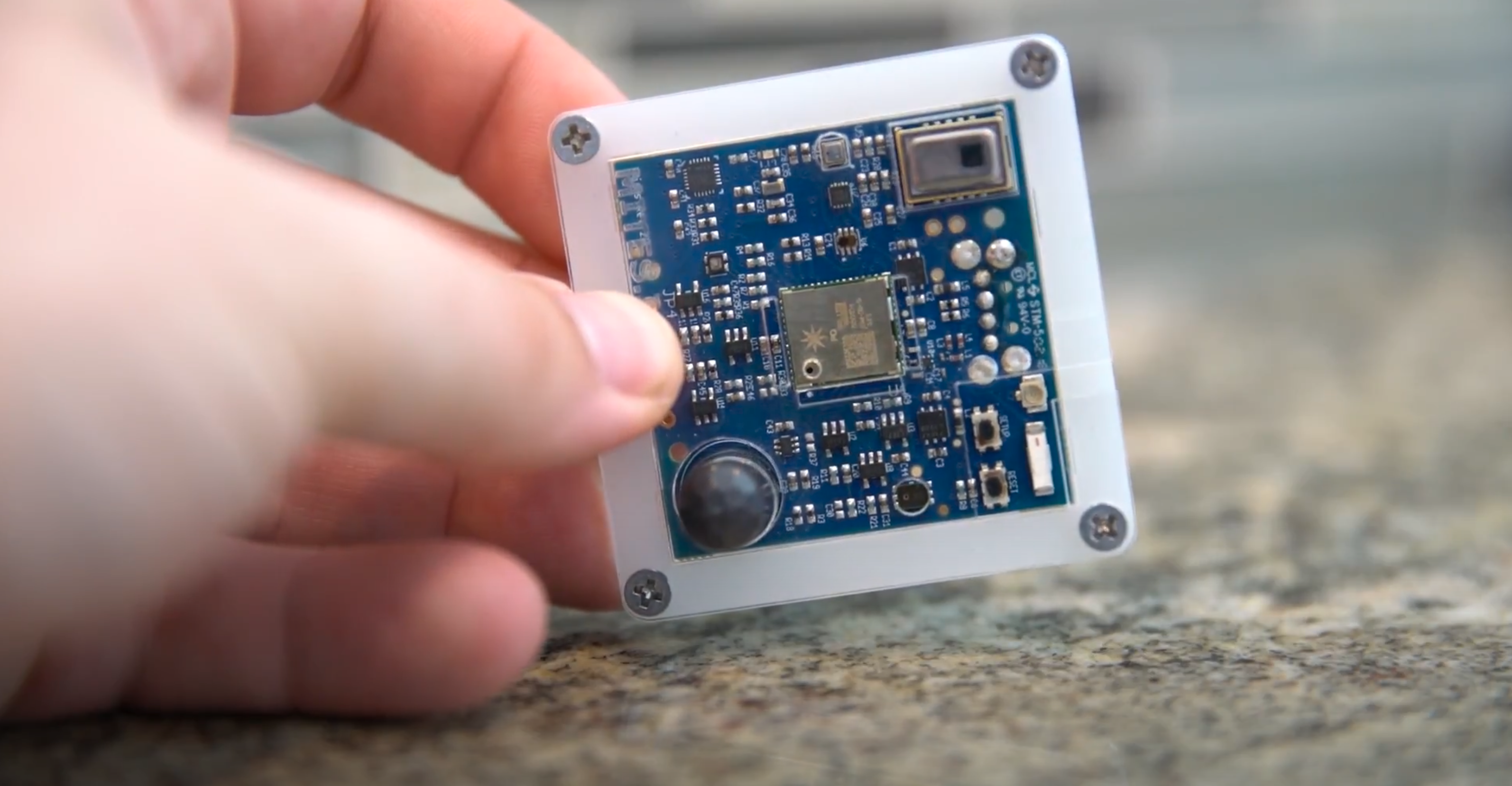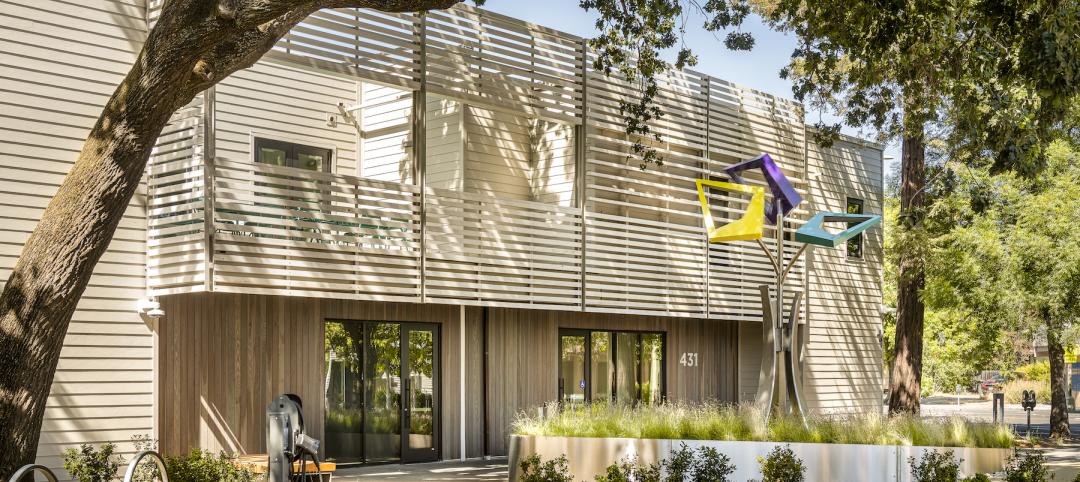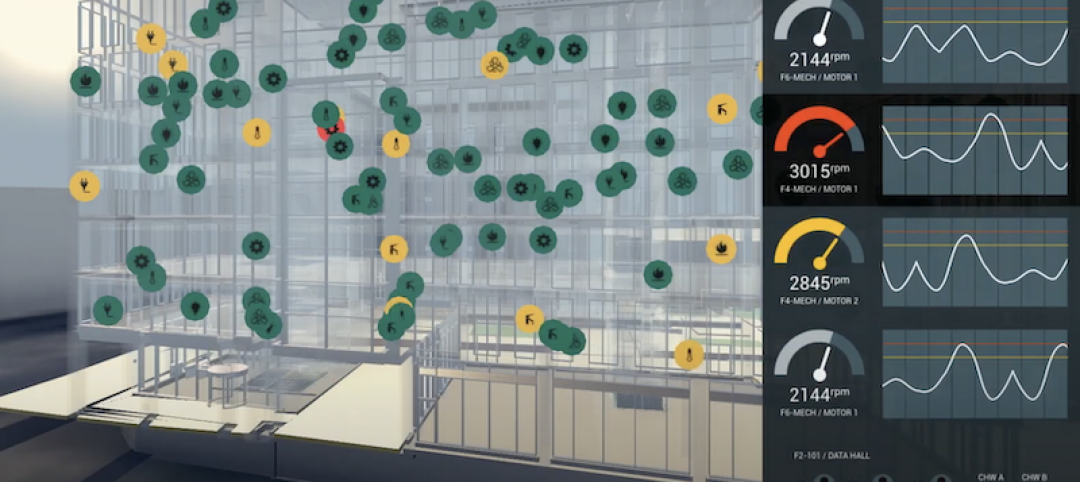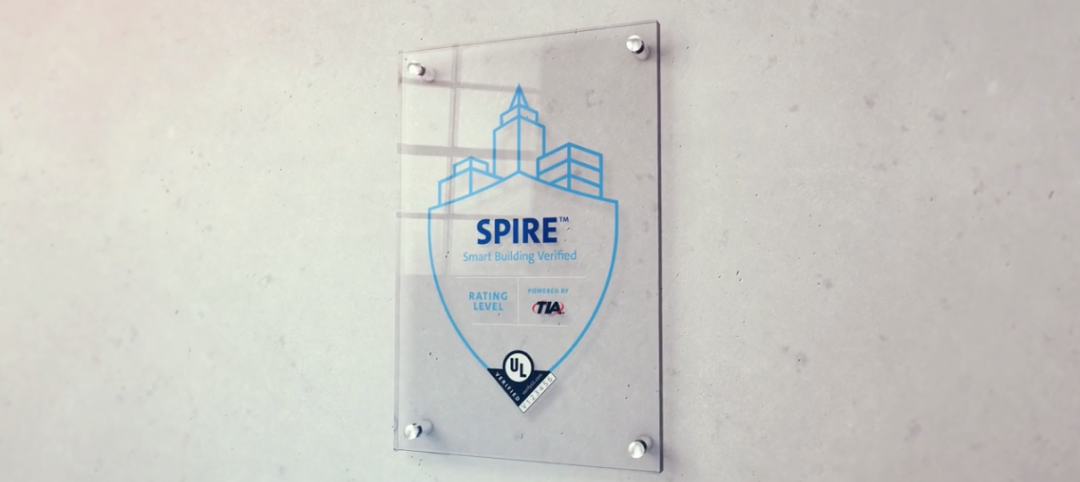A research project to test next-generation building sensors at Carnegie Mellon University provoked intense debate over the privacy implications of widespread deployment of the devices in a new 90,000-sf building.
The light-switch-size devices, called Mites, are capable of measuring 12 types of data, including motion and sound. The sensors were mounted in more than 300 locations throughout the building—on walls and ceilings of hallways, in conference rooms, and in private offices—as part of a research project on smart buildings.
Students and faculty who research the social impacts of technology felt that the device’s microphone, infrared sensor, thermometer, and other sensors, would subject them to experimental surveillance. They objected to the fact that the devices were installed without their explicit consent.
Researchers behind the project had taken steps to anonymize data collected by the building sensors, but that didn’t staunch concerns by building occupants. The project highlights latent mistrust over technologies that can be used as surveillance devices.
“Current IoT systems offer little transparency about exactly what data is being collected, how it is being transmitted, and what security protocols are in place—while erring on the side of over-collection,” according to a report in Technology Review.
Widely reported incidents of smart-home devices such as baby monitors, Google Home and Amazon Alexa speakers, and robot vacuums being hacked or having their data shared without users’ knowledge or consent, complicate the climate for public acceptance of building sensors.
As work continues on the project, how Carnegie Mellon researchers build in privacy safeguards, and how well they communicate those measures to the university community, may be instructive about whether this technology is accepted by the public.
Related Stories
Modular Building | Jul 6, 2023
Lennar, Mastry Ventures make multi-million dollar investment in net-zero prefab homes
Mastry Ventures and LENx, the venture arm of homebuilder Lennar, have co-invested in Vessel Technologies’ next-generation housing product.
AEC Tech | May 9, 2023
4 insights on building product manufacturers getting ‘smart’
Overall, half of building product manufacturers plan to invest in one or more areas of technology in the next three years.
Intelligent Lighting | Feb 13, 2023
Exploring intelligent lighting usage in healthcare, commercial facilities
SSR's Todd Herrmann, PE, LEEP AP, explains intelligent lighting's potential use cases in healthcare facilities and more.
Products and Materials | Jan 18, 2023
6 innovative products for multifamily developments
Here are six innovative products for various multifamily developments, including a condominium-wide smart electrical system, heavy-duty aluminum doors, and prefabricated panels.
BAS and Security | Oct 19, 2022
The biggest cybersecurity threats in commercial real estate, and how to mitigate them
Coleman Wolf, Senior Security Systems Consultant with global engineering firm ESD, outlines the top-three cybersecurity threats to commercial and institutional building owners and property managers, and offers advice on how to deter and defend against hackers.
Green | Oct 5, 2022
In California, a public power provider’s new headquarters serves as a test case for an innovative microgrid and for reducing greenhouse gas emissions
Sonoma Clean Power (SCP), the public power provider for California’s Sonoma and Mendocino Counties, recently unveiled its new all-electric headquarters.
Smart Buildings | Jun 1, 2022
Taking full advantage of smart building technology
Drew Deatherage of Crux Solutions discusses where owners and AEC firms could do better at optimizing smart technology in building design and operations.
Digital Twin | May 24, 2021
Digital twin’s value propositions for the built environment, explained
Ernst & Young’s white paper makes its cases for the technology’s myriad benefits.
Smart Buildings | Nov 20, 2020
The Weekly show: SPIRE smart building rating system, and pickleball court design tips
The November 19 episode of BD+C's The Weekly is available for viewing on demand.
Smart Buildings | Oct 26, 2020
World’s first smart building assessment and rating program released
The SPIRE Smart Building Program will help building owners and operators make better investment decisions, improve tenant satisfaction, and increase asset value.

















